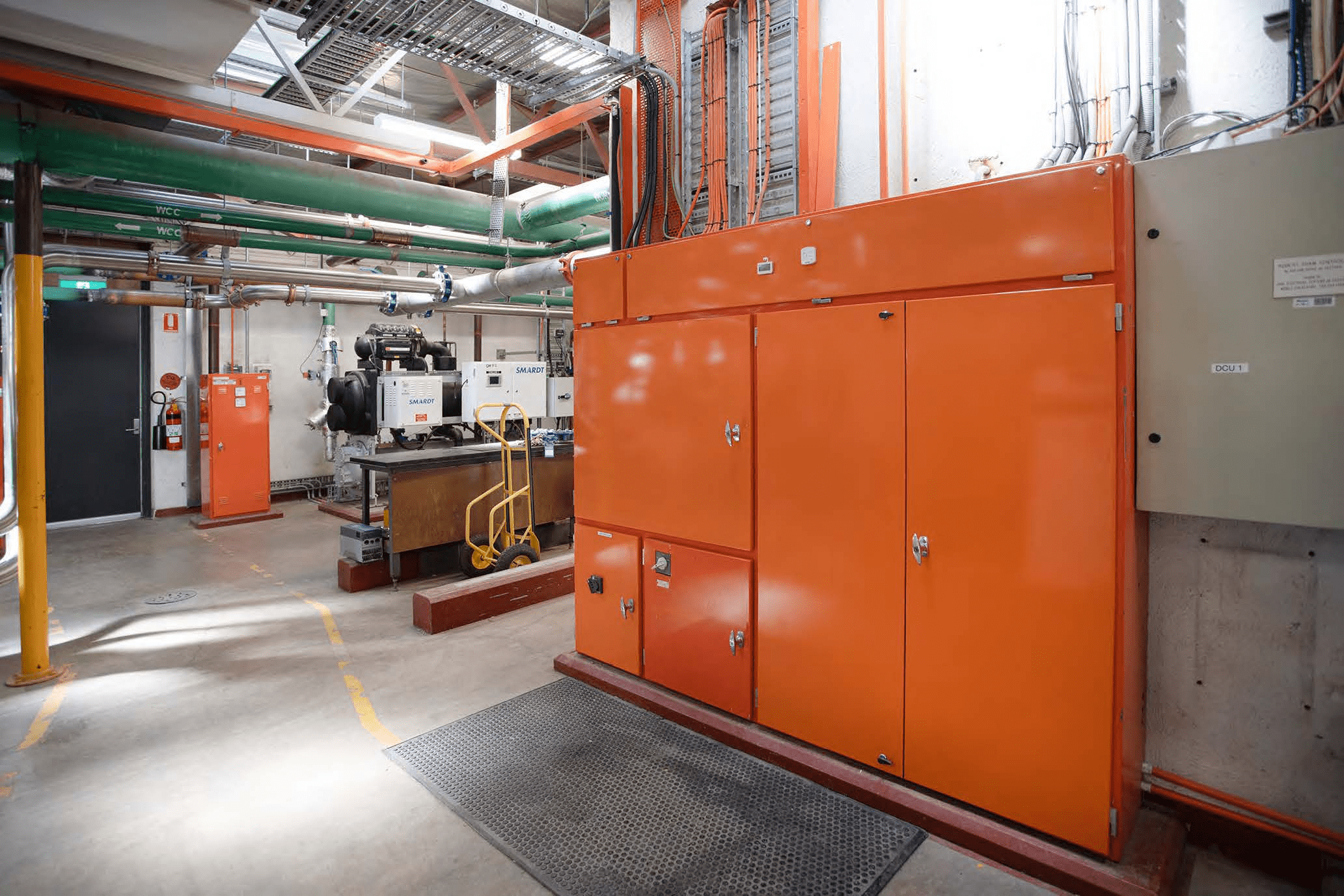Commercial Electrical Maintenance
for Restaurants and Cafes
When you step into your favourite restaurant or café, you're likely to be greeted by the inviting aroma of freshly prepared dishes, the comforting hum of a bustling environment, and the soft glow of ambient lighting. Behind the scenes, a well-functioning electrical system powers everything from the ovens and refrigerators to the lighting and HVAC, ensuring that your dining experience is both delightful and safe.
In this guide, we explore the critical role of electrical maintenance in the food service industry and the impact of equipment breakdowns on restaurant operations. We'll also delve into the common electrical issues encountered, the benefits of regular maintenance, and strategies for preventing electrical failures. Whether you're a restaurant owner or simply a patron who values a seamless dining experience, understanding the importance of electrical maintenance in these establishments is crucial.
The Importance of Electrical Maintenance in the Foodservice Industry
Electrical maintenance in the food service industry is not a mere convenience but a necessity. Restaurants and cafes rely on a wide variety of electrical appliances and systems to run their operations efficiently. From cooking equipment and refrigeration units to heating, ventilation, and air conditioning (HVAC) systems, the uninterrupted flow of electricity is essential for ensuring food safety, guest comfort, and the overall success of the business.
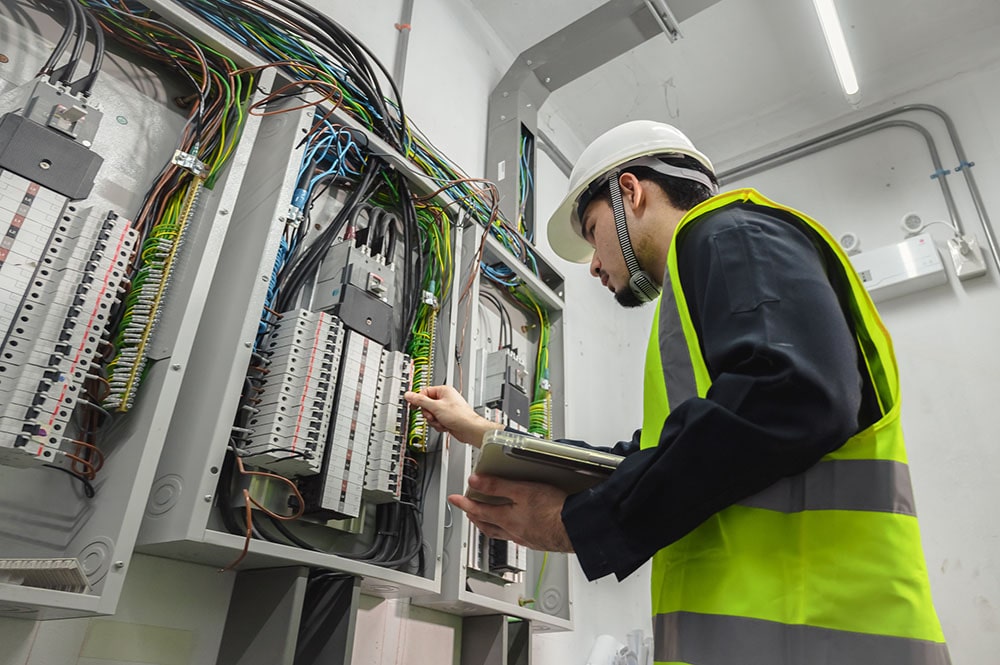
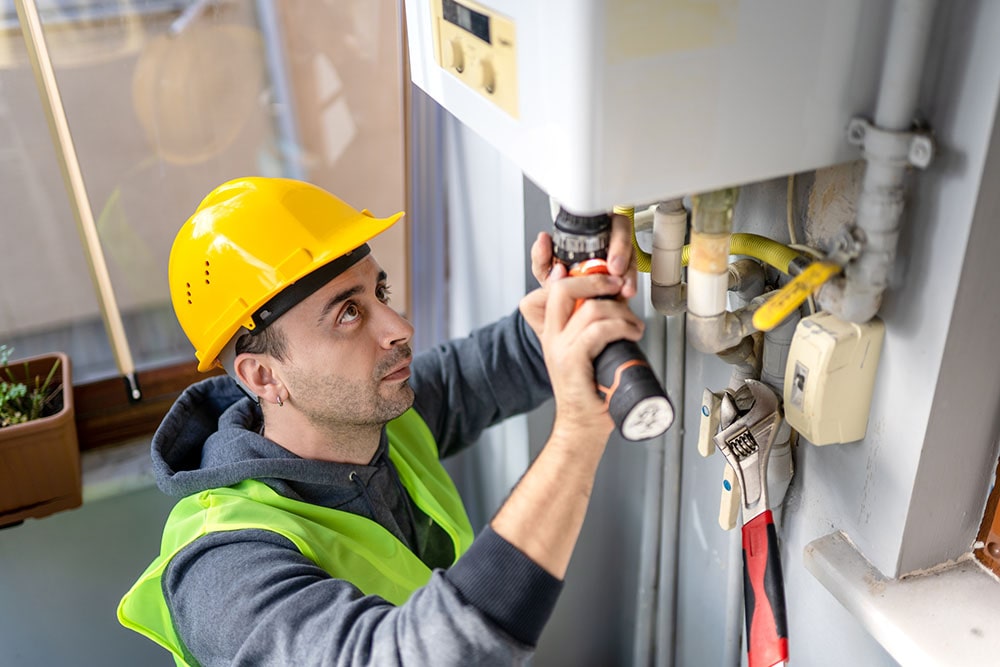
The Impact of Electrical Equipment Breakdowns on Restaurant Operations
Imagine the chaos that would ensue if a restaurant's ovens suddenly stopped working during the dinner rush, or if the refrigeration units failed, jeopardising food safety. Electrical equipment breakdowns can bring operations to a grinding halt, resulting in lost revenue, food wastage, and dissatisfied customers. In some cases, these disruptions may even lead to reputational damage that is challenging to repair.
Critical Electrical Equipment in Restaurants and Cafes

Ovens and Stoves: The kitchen's heart, ovens and stoves are indispensable for crafting culinary delights with precision. They enable roasting, baking, grilling, and sautéing, ensuring every dish is a flavorful masterpiece.
Refrigeration Units: Freshness is paramount, and refrigerators and freezers preserve ingredient quality. They keep vegetables crisp, safeguard meats, and ensure food safety by reducing contamination risks.
HVAC Systems: HVAC systems maintain a comfortable environment for both customers and staff. They regulate temperature, ensuring a pleasant dining experience and a conducive workspace for kitchen staff.
Lighting: This is crucial for dining establishments. It sets the mood, defines the atmosphere, and contributes to the overall ambience. It also ensures safety by illuminating walkways, exits, and food presentation areas.
Point of Sale (POS) Systems: POS systems streamline ordering, payment, and communication processes. They provide valuable data for efficient business operations, including inventory management and financial reporting.
These critical electrical appliances and systems collectively form the backbone of any food service establishment, from the finest gourmet restaurants to cozy neighbourhood cafes. Their proper functioning is not only essential for the success of the business but also for delivering a memorable dining experience that keeps customers coming back for more.
Common Electrical Issues in the Food Service Industry
Ensuring the smooth and efficient operation of a restaurant or café relies heavily on electrical systems and equipment. However, these establishments are particularly susceptible to a range of common electrical problems, each with its unique set of challenges and potential consequences.
Overloading: Excessive use of electrical appliances can overload circuits, leading to power outages. Overloading is a frequent issue in the food service industry, where multiple appliances, from ovens and fryers to coffee makers and POS systems, maybe in constant use. When the demand for electrical power exceeds the capacity of the circuits, it can lead to disruptions in the kitchen and dining area, impacting customer service and staff productivity.
Wiring Problems: Faulty or outdated wiring can pose fire hazards and result in equipment malfunctions. Wiring issues are particularly concerning, as they may not be immediately apparent but can lead to devastating consequences. Frayed or damaged wires, outdated wiring systems, or poor installation can increase the risk of electrical fires, disrupting business operations and posing a significant threat to staff and customer safety.

Appliance Failures: Frequent use of cooking and refrigeration equipment can lead to wear and tear, resulting in breakdowns. In a busy restaurant or café, cooking and refrigeration appliances work tirelessly day and night. Over time, this continuous use can lead to the mechanical and electrical components wearing out, causing these essential devices to fail. Appliance failures can result in food spoilage, operational disruptions, and financial losses.
Electrical Surges: Power surges can damage appliances and electrical systems, causing unexpected downtime. Power surges can occur due to various factors, such as lightning strikes, utility grid fluctuations, or even internal factors within the establishment. These surges send excess electrical energy through circuits and sensitive electronic components, potentially damaging or destroying appliances and systems, disrupting service, and incurring repair or replacement costs.
Highlighting Potential Consequences
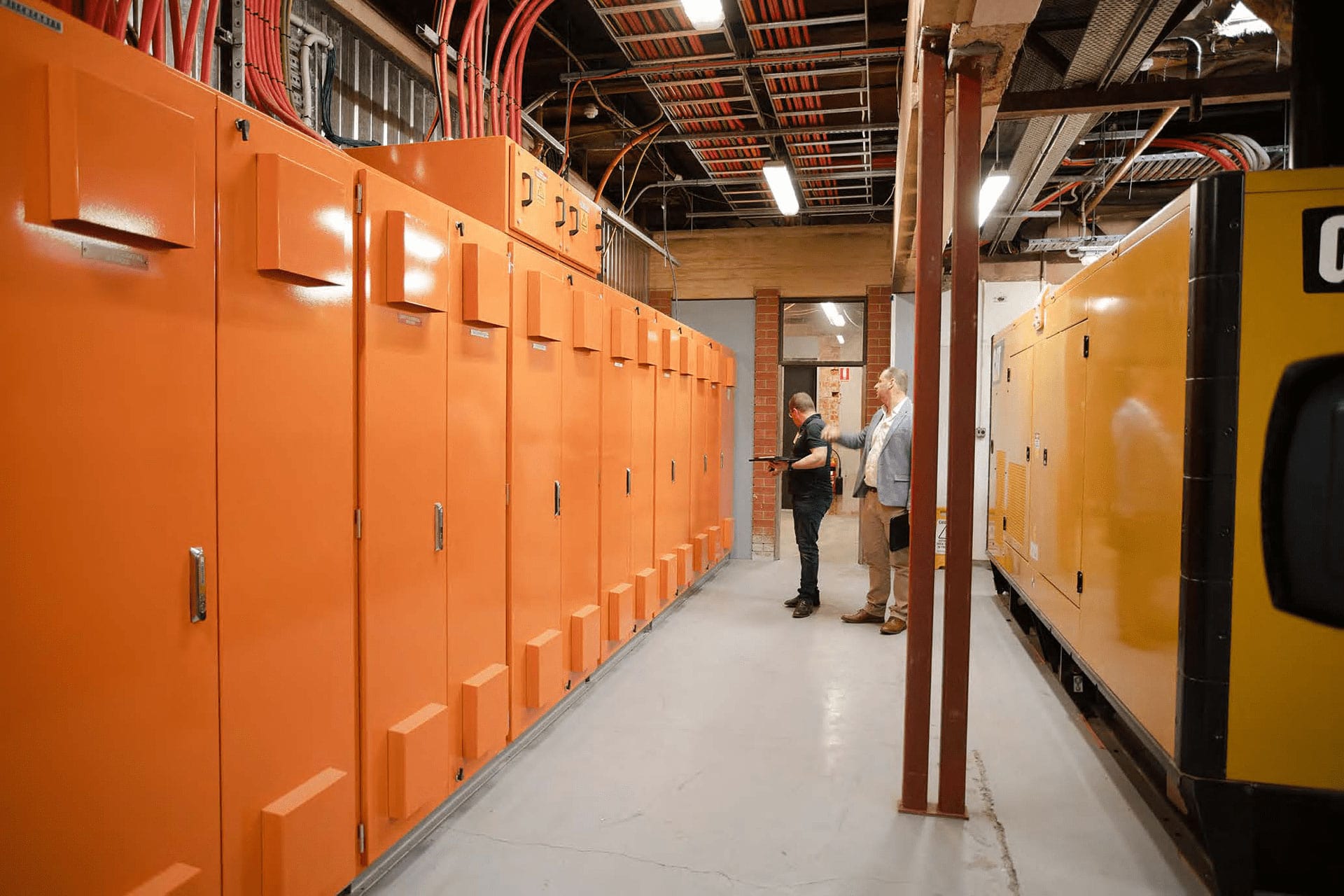
Understanding the potential consequences of these electrical issues underscores the critical importance of addressing them promptly and proactively:
Operational Disruptions: Electrical issues can disrupt the smooth flow of operations in a restaurant or café. Whether due to power outages, appliance failures, or other problems, any disruption can lead to delays in food preparation, service, and transaction processing, frustrating both customers and staff.
Financial Losses: The financial implications of electrical problems can be significant. Operational disruptions, repair costs, and the loss of revenue during downtime can all contribute to financial losses that affect the bottom line of the business.
Food Safety Risks: The food service industry places a premium on food safety. Electrical problems, especially those affecting refrigeration and cooking equipment, can jeopardise the safety of food items, leading to spoilage and, in worst-case scenarios, the risk of foodborne illnesses. Ensuring food safety is not only an ethical responsibility but also a legal obligation.
Safety of Staff and Customers: Electrical issues, especially those related to wiring problems and fire hazards, can compromise the safety of both staff and customers. Safety should be a paramount concern, and addressing these issues promptly is crucial to preventing harm and ensuring a secure dining environment.
Benefits of Regular Maintenance
In the fast-paced and dynamic environment of restaurants and cafes, where electrical systems and appliances are the lifeblood of daily operations, proactive electrical maintenance stands as a fundamental pillar of success. The advantages of such maintenance are multifaceted, ensuring that the establishment not only runs smoothly but also safeguards its reputation, staff, and customers.
Preventing Downtime: Regular maintenance helps identify and address issues before they escalate, reducing downtime. Downtime in a restaurant or café can be catastrophic. Customers expect efficient service, and delays in food preparation, transaction processing, or service can lead to frustration and a negative dining experience. Proactive maintenance minimises the risk of sudden equipment failures, ensuring the consistent flow of operations.
Cost Savings: Preventing major breakdowns is more cost-effective than extensive repairs or replacements. The cost of repairing or replacing critical electrical equipment, especially in emergencies, can be exorbitant. Proactive maintenance is an investment that pays off in the long run by minimising the need for costly emergency repairs and ensuring that equipment operates at peak efficiency, which can save on energy costs over time.
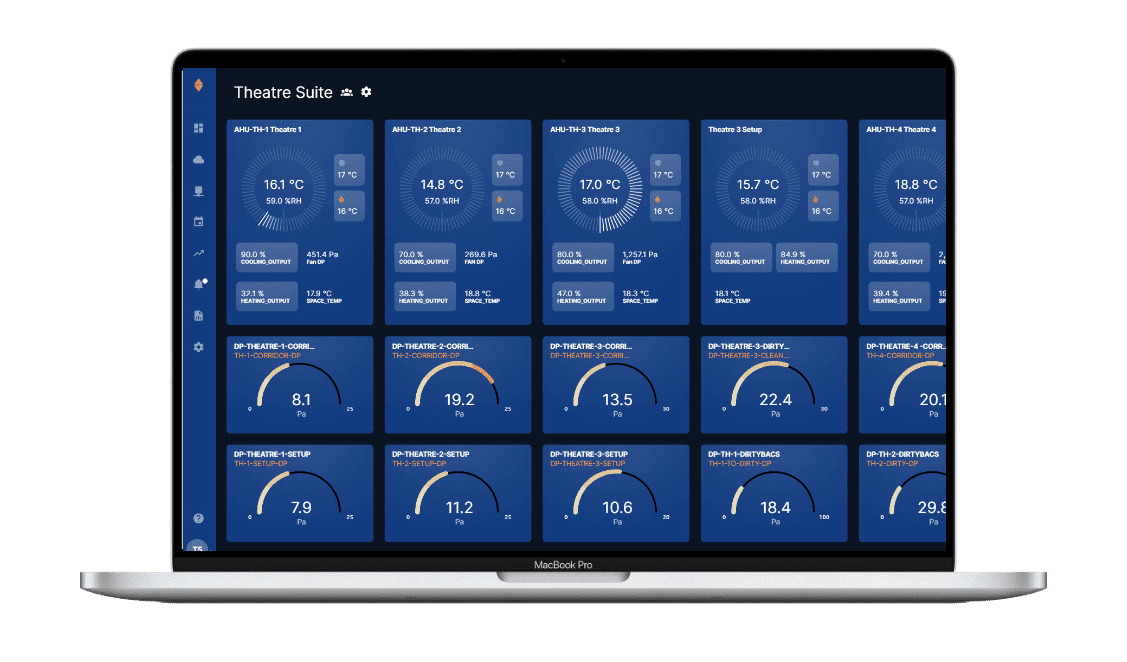
Safety: Electrical hazards, such as frayed wires, overloaded circuits, or malfunctioning appliances, can pose serious safety risks. Regular maintenance not only identifies these potential hazards but also mitigates them, protecting the well-being of both employees and patrons.
Extended Equipment Lifespan: Maintenance prolongs the lifespan of electrical equipment, protecting your investment. In a restaurant or café, equipment is a significant investment. Regular maintenance not only prevents wear and tear but also extends the life of appliances and systems, maximising the value of your assets and reducing the frequency of replacements.
Maintenance Checklist for Electrical Equipment

A comprehensive maintenance plan is essential for the longevity and reliability of electrical equipment. Here's a detailed checklist for keeping these systems in optimal condition:
Scheduled Inspections: Regularly inspect all electrical equipment for signs of wear, damage, or malfunction. These inspections should cover wiring, circuit breakers, appliances, and other components. Early detection of issues is crucial for prompt resolution.
Cleaning: Keep equipment clean and free from debris or grease buildup. Dirt and grease can accumulate on equipment, reducing efficiency and increasing the risk of electrical problems. Regular cleaning ensures that appliances and systems operate optimally.
Testing: Regularly test electrical systems and appliances for functionality. Testing ensures that all components are in working order. For example, testing circuit breakers, outlets, and safety features can identify potential issues before they become problematic.
Preventive Maintenance Strategies
Preventing electrical equipment failures is a proactive approach that involves the following strategies:
Predictive Maintenance: Use data and technology to predict equipment failures and schedule maintenance accordingly. Predictive maintenance leverages data analytics and sensor technology to monitor the condition of equipment in real time. This data-driven approach enables businesses to identify potential issues before they lead to breakdowns, allowing for timely maintenance and minimising disruptions.
Early Problem Detection: Encourage staff to report any electrical issues promptly, preventing minor problems from becoming major disruptions. Your staff are often the first to notice issues with electrical equipment. Encourage them to report any abnormalities or malfunctions promptly. Early intervention can prevent minor problems from escalating into costly and time-consuming disruptions.


Professional vs. DIY Maintenance
When it comes to maintaining the electrical systems and equipment in your restaurant or café, you have the option of either relying on professional electricians or attempting DIY maintenance. While there may be some tasks that can be handled by staff or restaurant owners, understanding the advantages of professional maintenance is crucial for making informed decisions about the care of your establishment's electrical infrastructure.
Professional Electricians
Comprehensive Maintenance: Professional electricians are highly trained and experienced in dealing with a wide range of electrical systems and equipment. They bring a depth of knowledge and expertise to the table that is difficult to match through DIY efforts. They have the skills to conduct comprehensive inspections, identify potential issues, and implement solutions that encompass the entire electrical system.
Safety Compliance: Electrical safety regulations and standards are a critical consideration for any food service establishment. Professional electricians are well-versed in these regulations and can ensure that your electrical systems meet or exceed safety standards. Compliance with safety codes and guidelines is essential for the safety of staff and customers, as well as for avoiding legal and regulatory issues.
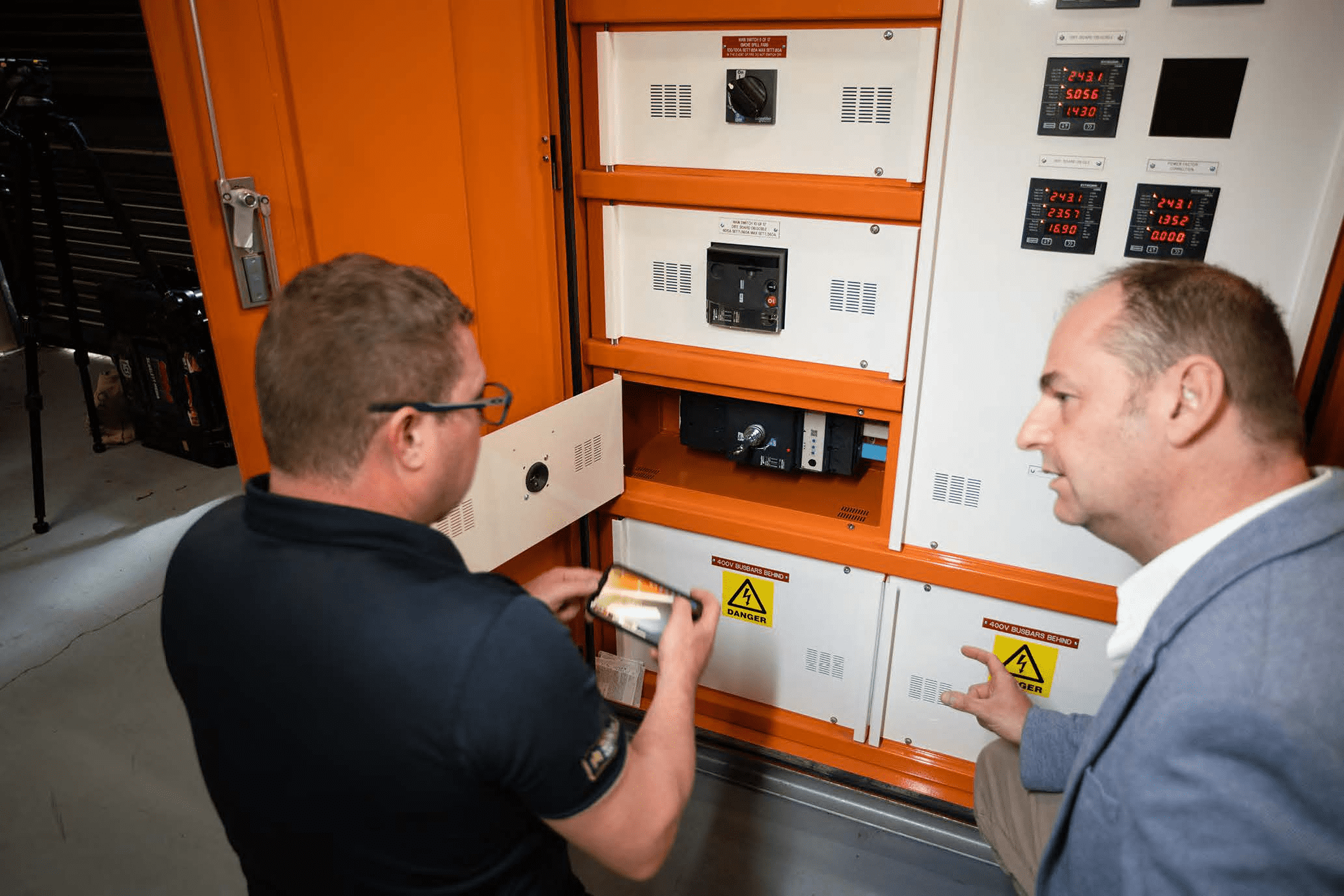
Timely Problem Resolution: Electrical issues can escalate rapidly, leading to costly repairs and disruptions. Professional electricians can respond quickly to identified problems and provide timely solutions. Their ability to diagnose and address issues promptly can significantly reduce downtime and minimise the impact on daily operations.
Knowledge of Complex Systems: Restaurants and cafes often have complex electrical systems that include commercial kitchen equipment, HVAC systems, lighting, and more. Professional electricians have the expertise to understand and maintain these intricate systems effectively. Their familiarity with the specific requirements of the food service industry ensures that your establishment's electrical infrastructure is properly managed.
DIY Maintenance
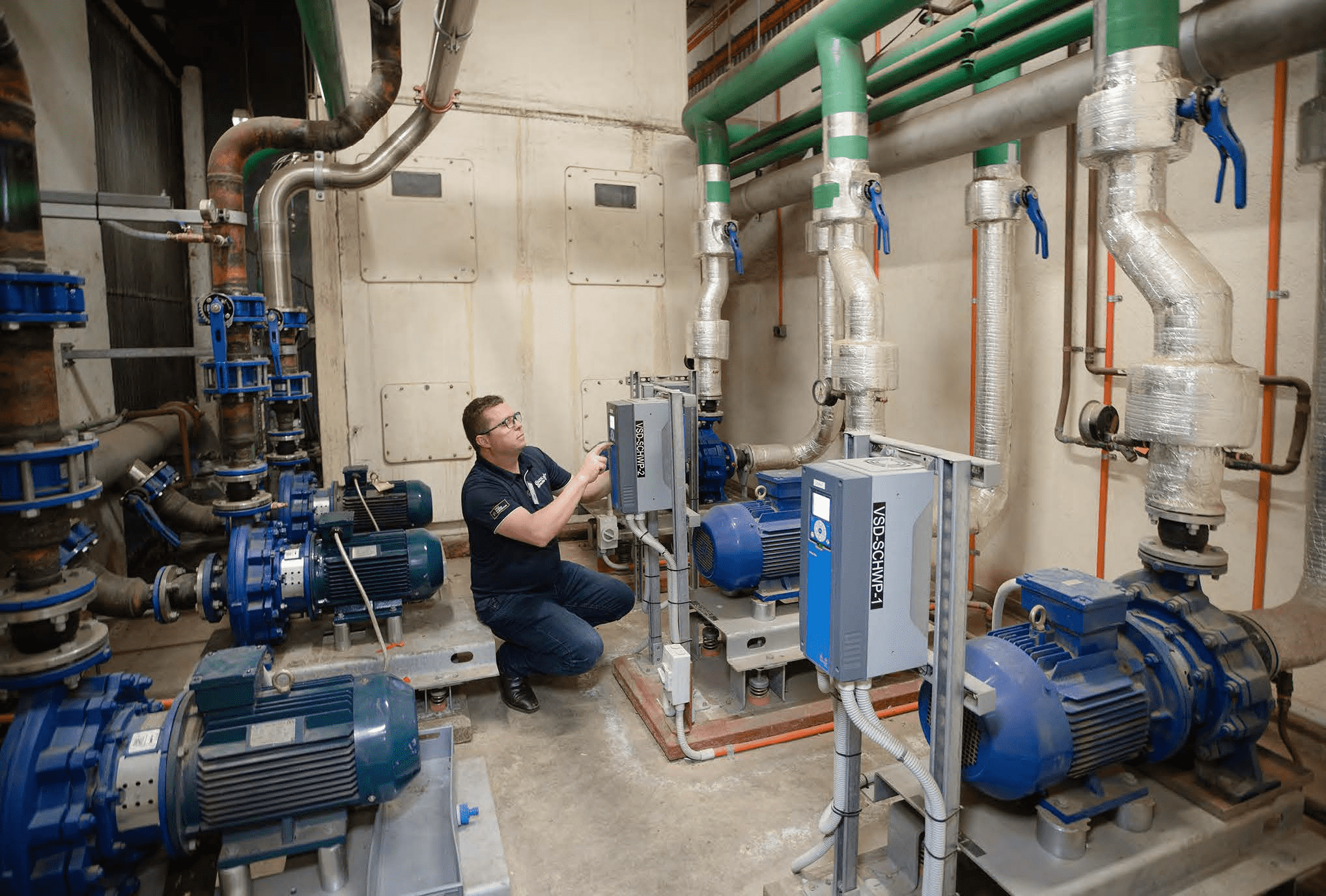
Limited Scope: DIY maintenance may be suitable for minor tasks, such as changing light bulbs, but it is often limited in scope. Complex electrical issues, such as wiring problems, circuit overloads, and equipment malfunctions, may be beyond the capability of DIY maintenance efforts.
Safety Risks: Attempting electrical maintenance without the necessary expertise can pose safety risks to individuals and the establishment. Electrical work is inherently dangerous, and mishandling can lead to electrical shocks, fires, and injuries.
Incomplete Maintenance: DIY efforts may lack the thoroughness of professional maintenance. Without the knowledge and experience to identify underlying issues, DIY maintenance may result in unresolved problems that can lead to more significant disruptions and expenses later on.
Therefore, professional maintenance by experienced electricians offers a host of advantages, making it the preferred choice for restaurants and cafes. Their comprehensive expertise, commitment to safety compliance, and ability to promptly address issues provide peace of mind and ensure that your electrical systems operate at their best. While some basic maintenance tasks may be suitable for DIY efforts, it is advisable to engage professional electricians for the complex and critical aspects of electrical maintenance in a food service establishment. The investment in professional maintenance not only preserves the efficiency and safety of your establishment but also protects your reputation and financial stability.
When to Seek Professional Help
Knowing when to seek professional help for electrical issues in your restaurant or café is crucial for ensuring the safety, reliability, and efficiency of your establishment's electrical infrastructure. Although minor maintenance tasks may be handled by staff or owners, it is essential to engage professional electricians in specific scenarios. Here are some instances when you should rely on the expertise of professionals:
- Major Electrical Issues: If significant electrical issues arise, such as complete power outages, widespread equipment failures, or extensive wiring problems, contacting professional electricians is imperative. They are experienced in diagnosing complex problems, addressing them effectively, and restoring normal operations swiftly.
- Safety Concerns: If there are safety concerns related to electrical systems or equipment, such as exposed wires, overheating appliances, or electrical sparks, professional electricians should be contacted immediately. These issues can pose a significant risk to staff and customers, and prompt professional intervention is crucial to prevent accidents, injuries, or fires.

- Routine Maintenance: Professional electricians should be entrusted with routine maintenance, including scheduled inspections, cleaning, and testing of electrical equipment. While some basic maintenance tasks can be performed by in-house staff, professionals have the expertise to conduct more in-depth assessments and identify potential issues that may not be apparent to non-specialists. Regular professional maintenance ensures that your electrical systems remain in peak condition, reducing the risk of unexpected breakdowns.
- Compliance with Safety Regulations: Compliance with electrical safety regulations and standards is non-negotiable in the food service industry. Professional electricians are well-versed in these regulations and can ensure that your electrical systems meet all requirements. Their knowledge of safety codes, guidelines, and best practices is instrumental in preventing regulatory violations, which can lead to legal and financial repercussions.
- Complex Repairs and Installations: When it comes to complex electrical repairs or new equipment installations, professional electricians are indispensable. Their expertise ensures that repairs are executed effectively and that new installations are completed safely and in compliance with industry standards. Attempting complex repairs or installations without professional guidance can result in suboptimal outcomes, costly mistakes, and potential safety hazards.
- Electrical Emergencies: In the event of electrical emergencies, such as fires or serious equipment malfunctions, professional electricians should be summoned immediately. These experts are equipped to handle emergencies, implement safety measures, assess damage, and conduct necessary repairs to mitigate further risks and damages.
Regulatory Compliance and Safety Standards
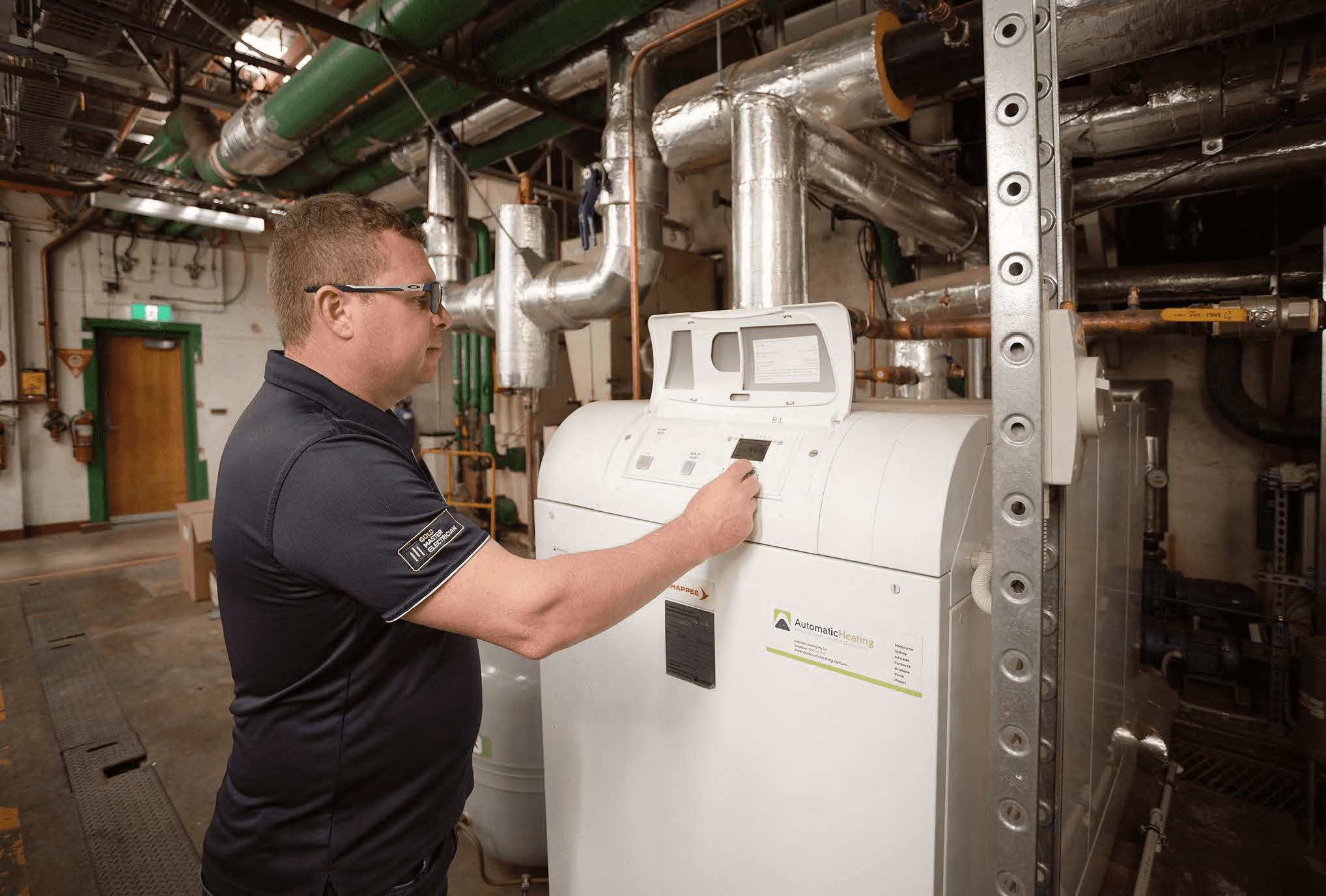
Running a restaurant or café in Australia necessitates strict adherence to regulatory compliance and safety standards. These standards are not a choice but a fundamental commitment to the well-being of patrons and staff. In the context of electrical safety, compliance with these standards is of utmost importance.
Australian Wiring Rules (AS/NZS 3000): The Australian Wiring Rules, known as AS/NZS 3000, serve as the definitive guide for safe electrical system installations in Australia. Covering wiring methods and equipment requirements, adherence to these rules is essential for the safe deployment of electrical infrastructure in restaurants and cafes. Compliance ensures that electrical systems are designed and installed to minimise risks, maintaining an uncompromised level of safety.
State-based Regulatory Authorities: In Australia, individual states and territories have their specific electrical safety regulations and regulatory bodies. These local authorities play a crucial role in offering guidance and supervision to avert electrical mishaps and uphold the safety of employees and patrons in bustling restaurant and café settings. Their directives include measures to prevent electrical shock, minimise fire hazards, and establish a safe working environment.
The Importance of Compliance
The importance of adhering to electrical safety regulations cannot be overstated. It extends far beyond the realm of legal obligations; it is an ethical commitment to preserving life and well-being. Here's why compliance is paramount:
Patron Protection: Diners in your establishment trust in the safety of the environment you provide. Compliance with electrical standards ensures that your patrons can savour their meals without fear, free from the spectre of electrical hazards that could put their lives at risk.
Employee Well-Being: Your staff is your stronghold, and their safety is your responsibility. Compliance with safety standards safeguards your employees against electrical dangers, reducing the risk of accidents, injuries, and potential health complications.
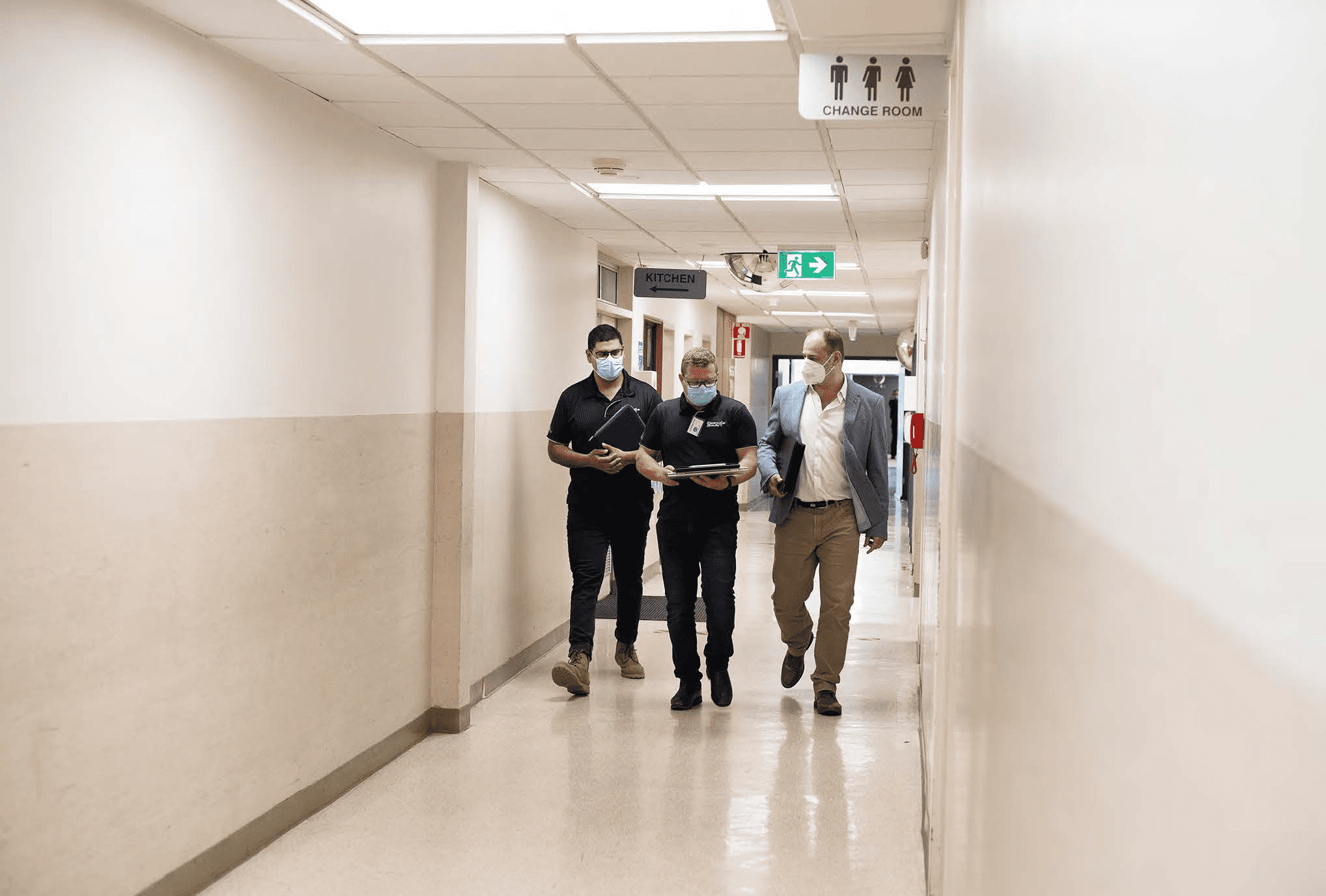
Legal and Financial Security: Non-compliance with electrical safety regulations can have severe legal consequences. Violations can result in fines, legal battles, and reputational damage that can tarnish the image of your restaurant or café. By adhering to these regulations, you shield your establishment from potential legal and financial peril.
Reputation and Customer Trust: An establishment with a sterling reputation is a beacon that draws patrons. Compliance with safety standards reinforces your reputation as a responsible and trustworthy entity, creating customer loyalty and trust.
Emergency Preparedness and Contingency Planning

Being in the food service industry, one should always be prepared for the unforeseen circumstances that can arise at any moment. Emergency preparedness and contingency planning are crucial to ensure that you are ready to face any challenges that come your way. It is similar to having a map to navigate through a labyrinth, guiding you through the darkness of electrical emergencies. A well-structured contingency plan serves as your guiding light when the power goes out equipment fails, and electrical issues threaten to cast a shadow over your restaurant or café.
The importance of being prepared cannot be overemphasized. In times of electrical emergencies, a well-defined contingency plan acts as your fortress. It provides a blueprint for action, a ray of hope when the lights go out, or equipment malfunctions. Contingency plans should cover crucial steps to take during power outages, appliance breakdowns, and other electrical crises, ensuring that your establishment remains safe and operational in the face of adversity.
Guidelines for Creating Emergency Plans
The development of an effective contingency plan rests on a few core principles:
Backup Power: Consider investing in backup generators to keep essential systems running during outages. These generators are your lifeline when the electrical grid falters, ensuring that critical appliances, refrigeration, and lighting continue to function. They provide stability and prevent spoilage, all while safeguarding your business's operations.
Staff Training: Train your employees in emergency protocols to ensure everyone's safety. Your staff is your first line of defence during crises. Equipping them with the knowledge and skills to respond swiftly and effectively to electrical emergencies is paramount. Staff training establishes a sense of order amid chaos, creating a cohesive and resilient team.
Communication: Establish a clear chain of communication to coordinate actions during an emergency. Effective communication is the linchpin of any successful emergency response. Whether it's notifying employees and patrons of the situation or coordinating actions among your staff, a well-structured communication plan ensures that everyone is on the same page during crises.
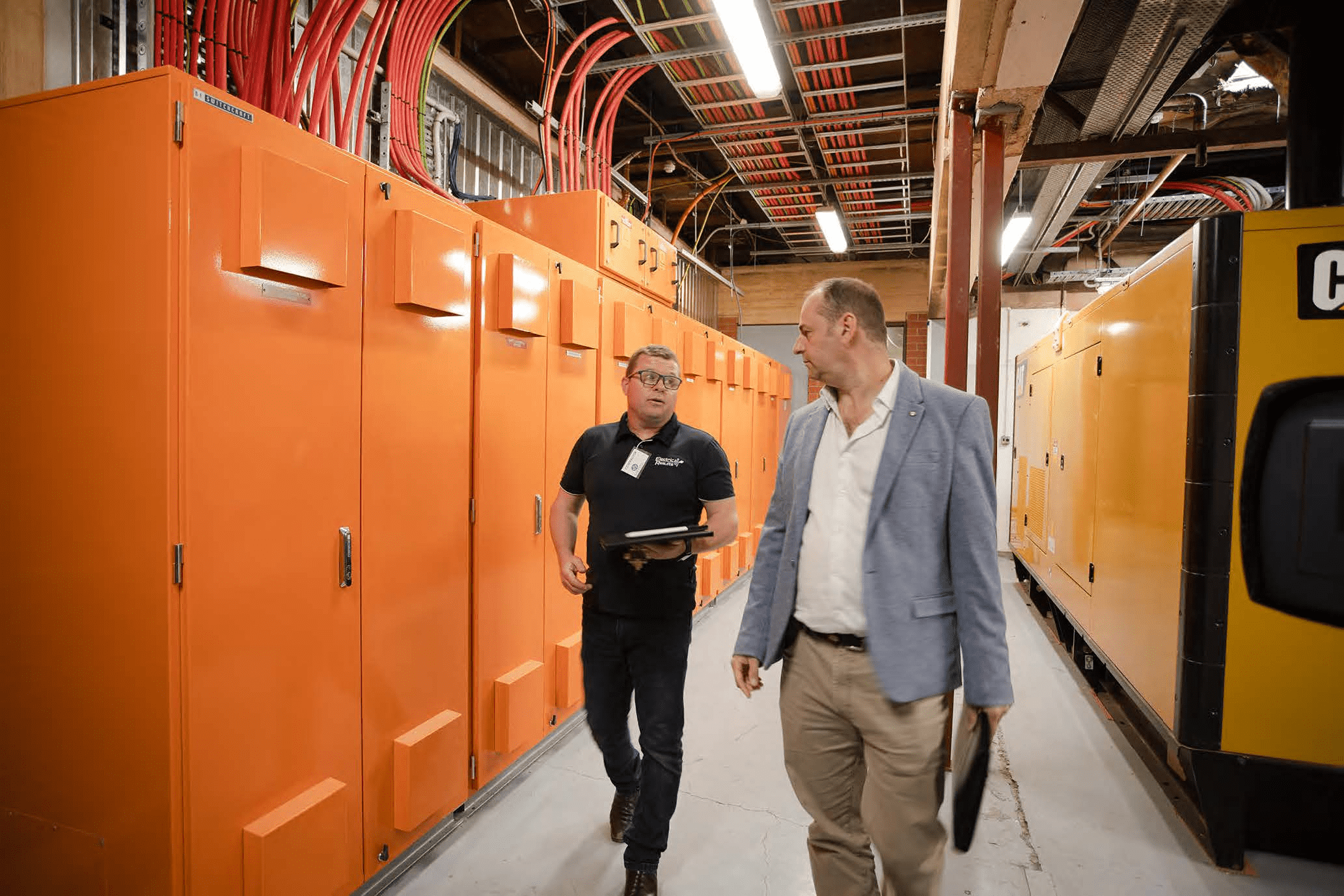
Electric Results: Your Trusted Partner for
Superior Commercial Electrical Maintenance
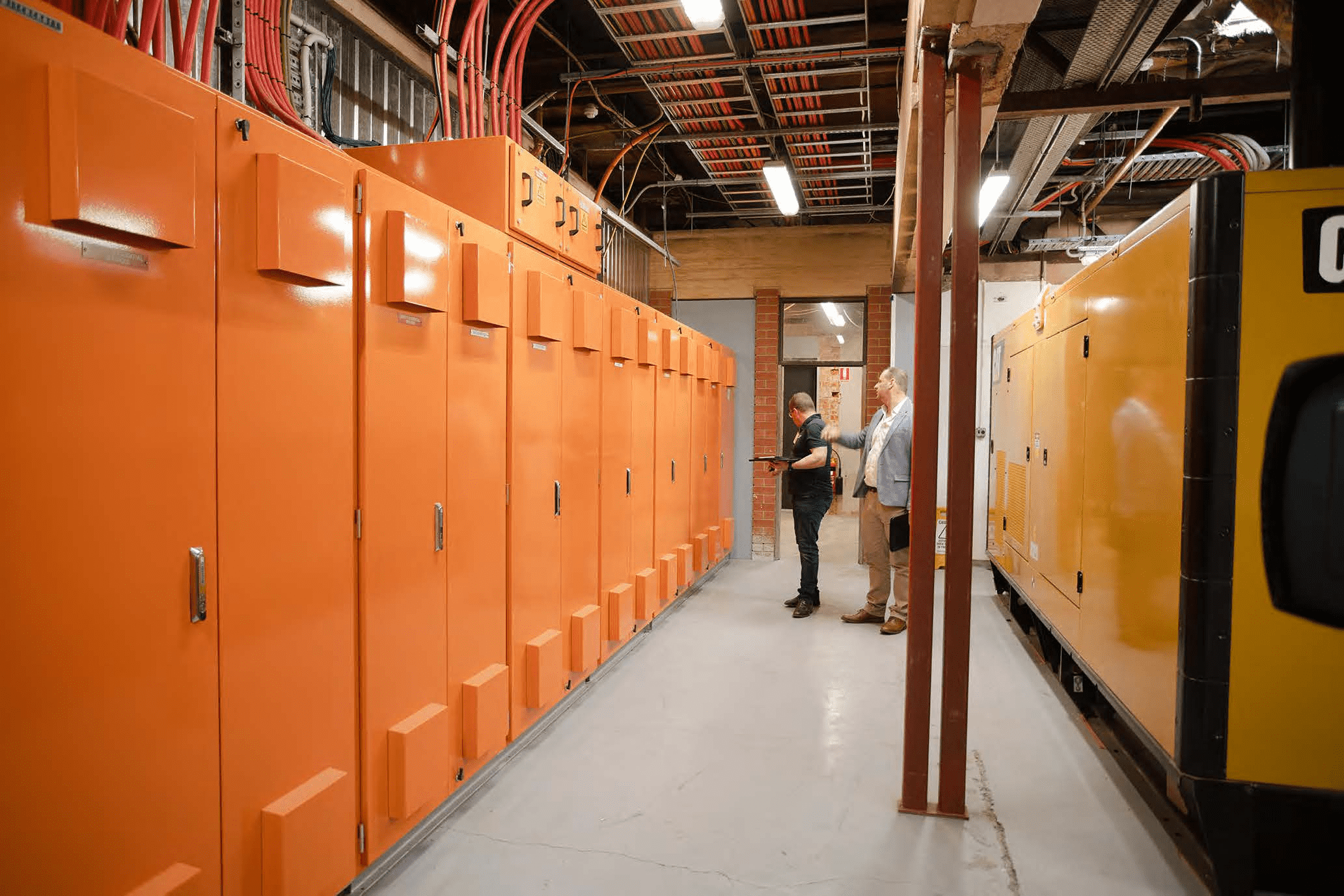
Regular electrical maintenance is crucial for the success, safety, and satisfaction of your restaurant or cafe. Neglecting electrical systems can lead to disruptions in operations and compromise the customer experience.
Electric Results offers cost-effective commercial electrical maintenance solutions to keep your business thriving and safe. In addition to regular maintenance, they can also assist with emergencies and help you create contingency plans. Prioritising electrical maintenance is not only a legal obligation but an ethical duty to prioritise the well-being of your staff and customers. It also leads to cost savings and a commitment to sustainable practices. Let Electric Results be your partner in safeguarding your establishment's reputation, business stability, and customer experience. Call us today.
Guidelines for Creating Emergency Plans
The development of an effective contingency plan rests on a few core principles:
Backup Power: Consider investing in backup generators to keep essential systems running during outages. These generators are your lifeline when the electrical grid falters, ensuring that critical appliances, refrigeration, and lighting continue to function. They provide stability and prevent spoilage, all while safeguarding your business's operations.
Staff Training: Train your employees in emergency protocols to ensure everyone's safety. Your staff is your first line of defence during crises. Equipping them with the knowledge and skills to respond swiftly and effectively to electrical emergencies is paramount. Staff training establishes a sense of order amid chaos, creating a cohesive and resilient team.
Communication: Establish a clear chain of communication to coordinate actions during an emergency. Effective communication is the linchpin of any successful emergency response. Whether it's notifying employees and patrons of the situation or coordinating actions among your staff, a well-structured communication plan ensures that everyone is on the same page during crises.
